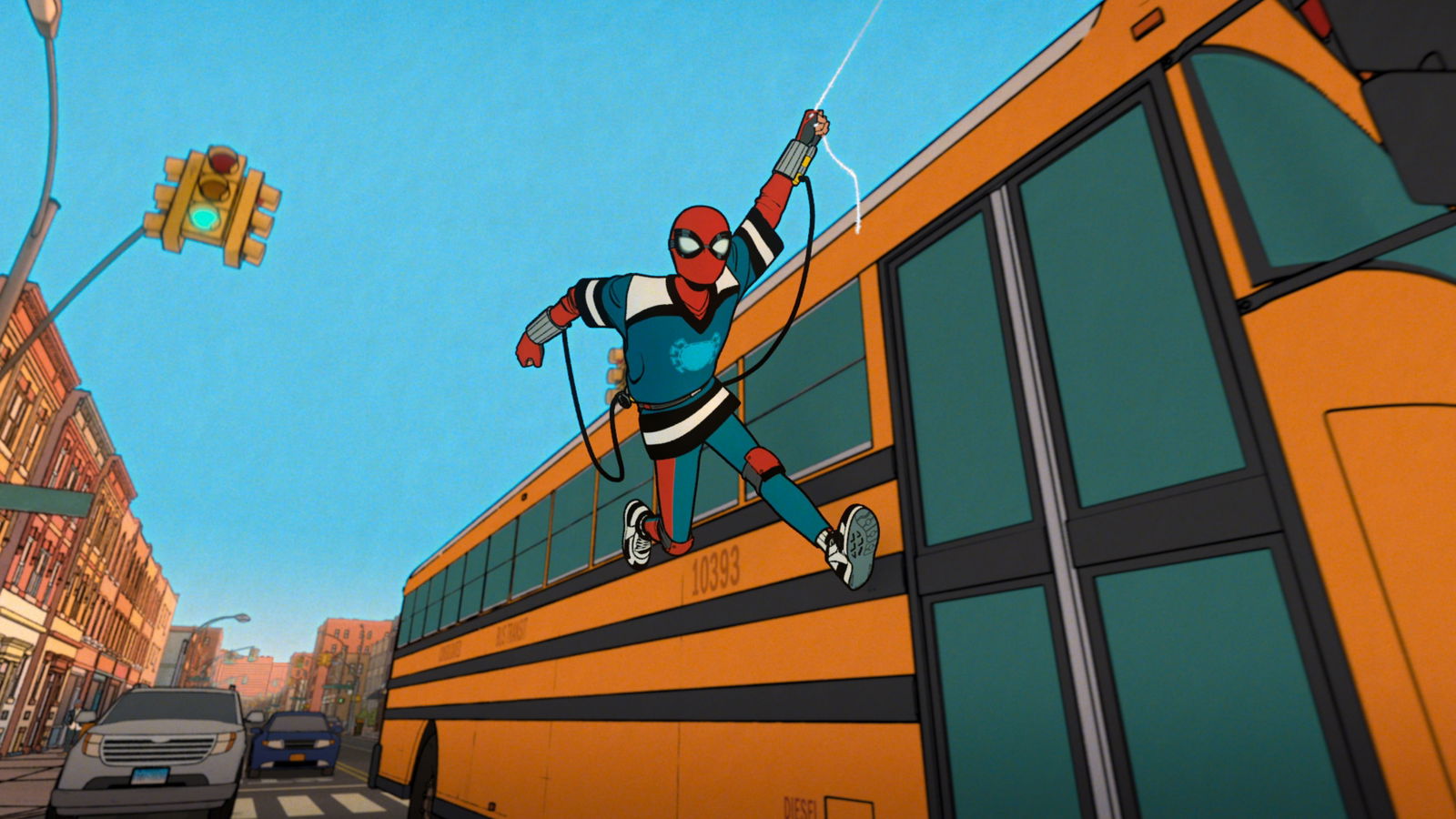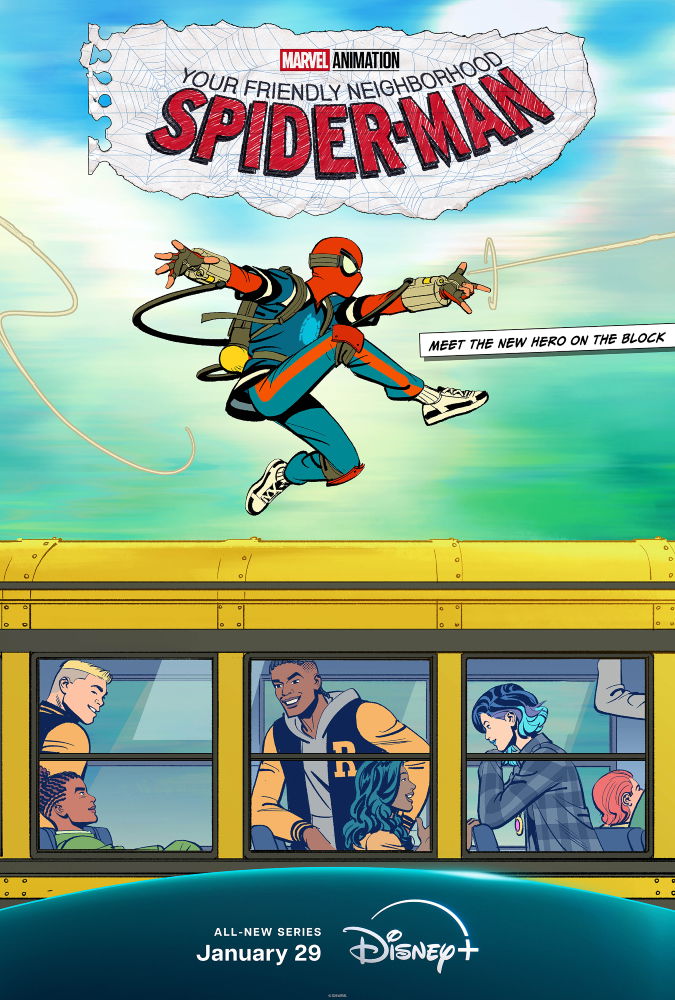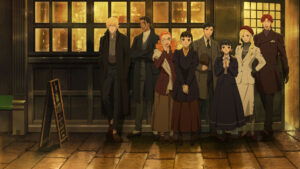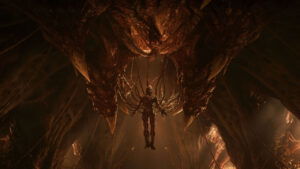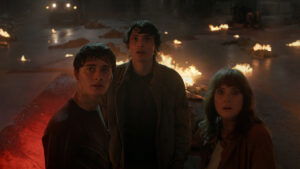As a lifelong Spider-Man fan, I’ve loved the way the Marvel Cinematic Universe has handled the character and his mythos for the most part—so Your Friendly Neighborhood Spider-Man‘s premise was particularly tantalizing. The MCU pushed Peter into Tony Stark’s shadow and interplanetary conflicts before we truly knew what he was all about, but an animated series focused on his early years should be the perfect counterpart, providing context that should fill in the gaps in Tom Holland’s iteration.
Or at least it would have been had Marvel Studios kept to the original concept. Instead, Your Friendly Neighborhood Spider-Man tells the story of another Peter Parker elsewhere in the Multiverse, opting for a more original take that unites various eras of the character’s history. Ultimately, it stands all the stronger for this decision.
On the surface, the series looks like a classic Stan Lee and Steve Ditko-era Amazing Spider-Man comic come to life. Peter has big, dorky glasses; his classmate Lonnie Lincoln sports a letterman jacket; and many other characters, like Otto Octavius, could have been transplanted directly from the original cartoon series. Yet there’s also a modern touch, seen in Nico Minoru’s highlights or the way Aunt May takes inspiration from Marisa Tomei’s on-screen portrayal. Think of a classic Archie comic in motion, but set in the modern day—complete with aliens, gang wars and giant science experiments.
Your Friendly Neighborhood Spider-Man wastes no time laying out its premise in the premiere. We meet everyday dweeb Peter Parker (Hudson Thames), witness the incident that leads to the bite of an enhanced spider, and before we know it, Spider-Man is swinging through downtown New York.
“Your Friendly Neighborhood Spider-Man threads a particularly tricky needle, presenting an original and self-sufficient webslinger adventure that’s also grounded loosely by MCU allusions.”
This particular retelling felt rushed at first; the circumstances around the inciting incident were certainly original, involving both the magical and alien sides of Marvel’s toy box, but it’s clear that the studio wants to spend no time on the Spider-Man backstory if it can avoid it. This was a wise call in Captain America: Civil War’s introduction, and the MCU has danced around Uncle Ben’s fate sufficiently since, but I wouldn’t have minded taking the time to lay down this essential piece of the mythos in this series.
Everyone knows the story, sure, and we’re all a little tired of certain superhero origin stories—how many times can we watch Martha Wayne’s pearls bounce across the alleyway, after all—but dodging Uncle Ben’s fate once again makes me wonder if we’re doing new stories a disservice by omission. We don’t need a lengthy on-screen retelling, but it’s the formative moment for the character. Only alluding to it in the vaguest of terms once or twice builds a mystery that is never paid off.
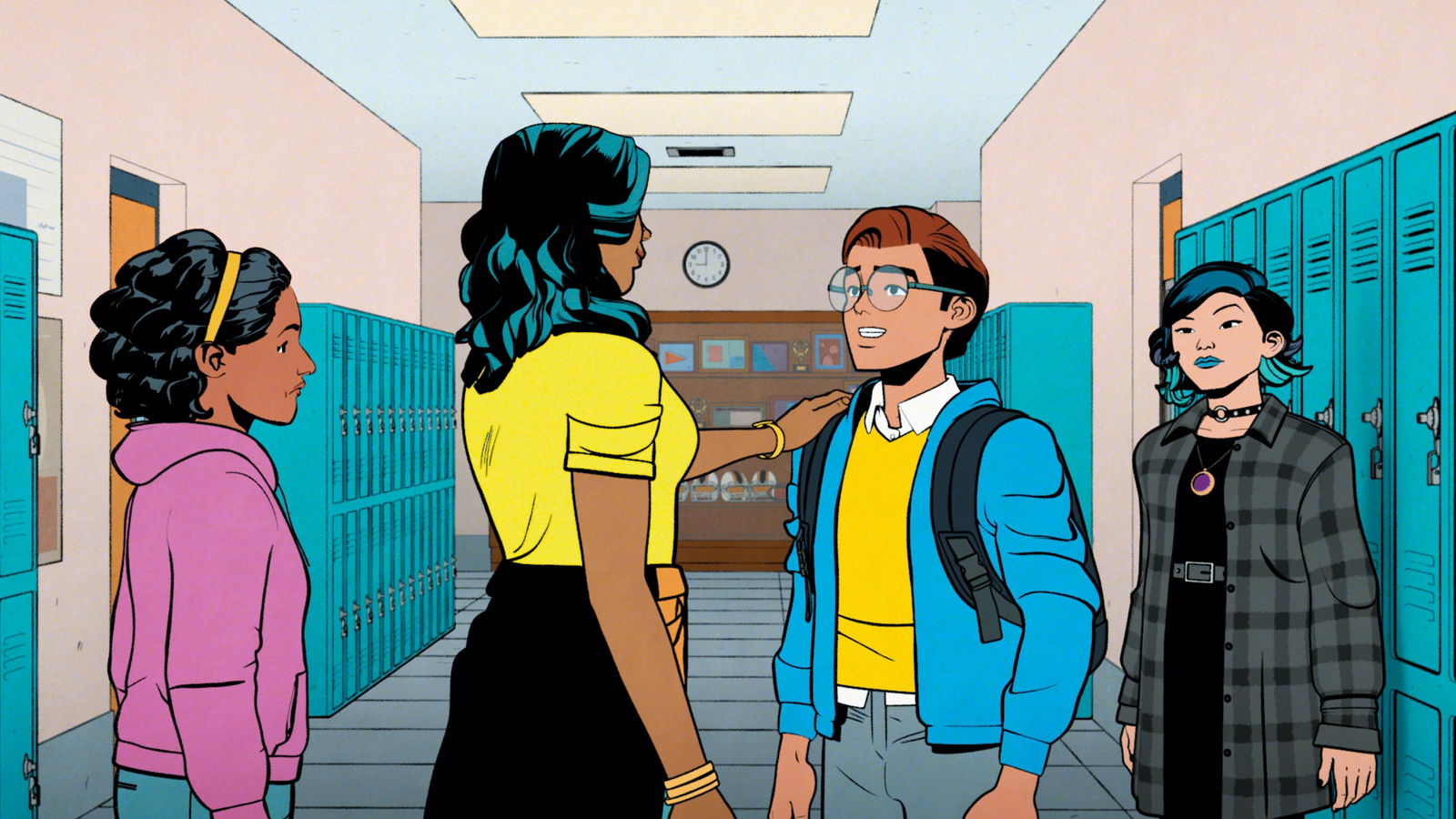
Regardless, while the first episode or two rush to set the stage, the writing and performances establish a refreshing ensemble. Your Friendly Neighborhood Spider-Man surrounds the webslinger with a vastly different support group, swapping Ned Leeds for Nico Minoru (Grace Song) and Harry Osborn (Zeno Robinson), while MJ is replaced as his crush by Pearl Pangan (Cathy Ang).
The starkest change is Norman Osborn (Colman Domingo) becoming Peter’s benefactor. This essentially turns the entire series into a What If…? episode, pondering the question, “What if Norman Osborn mentored Spider-Man instead of Tony Stark?” (This approach is only enhanced by the fact that the series is apparently set in an alternate universe closely related to the MCU, where events like the Sokovia Accords and the Chitauri invasion also happened as they did in the movies.)
“This series does what the high-profile feature films haven’t managed to do since Raimi’s second movie: show a new Spider-Man mythos that honours the past while representing the present.”
While the whole ensemble is great, Domingo is a pitch-perfect choice for Norman Osborn, playing well off Thames as Peter. Both leads channel enough of their big-screen counterparts (Willem Dafoe and Tom Holland, respectively) to feel familiar, but they make the roles their own and grow beyond them.
In balancing its own agenda with decades of previous storytelling (and animation), Your Friendly Neighborhood Spider-Man threads a particularly tricky needle, presenting an original and self-sufficient webslinger adventure that’s also grounded loosely by MCU allusions. After the foundation is laid in the first two episodes, it picks up speed in the third, fourth and fifth episodes (which will arrive on Disney+ together on Feb. 5) and soars in the back half of the season, as the requisite struggles between great power and responsibility begin.
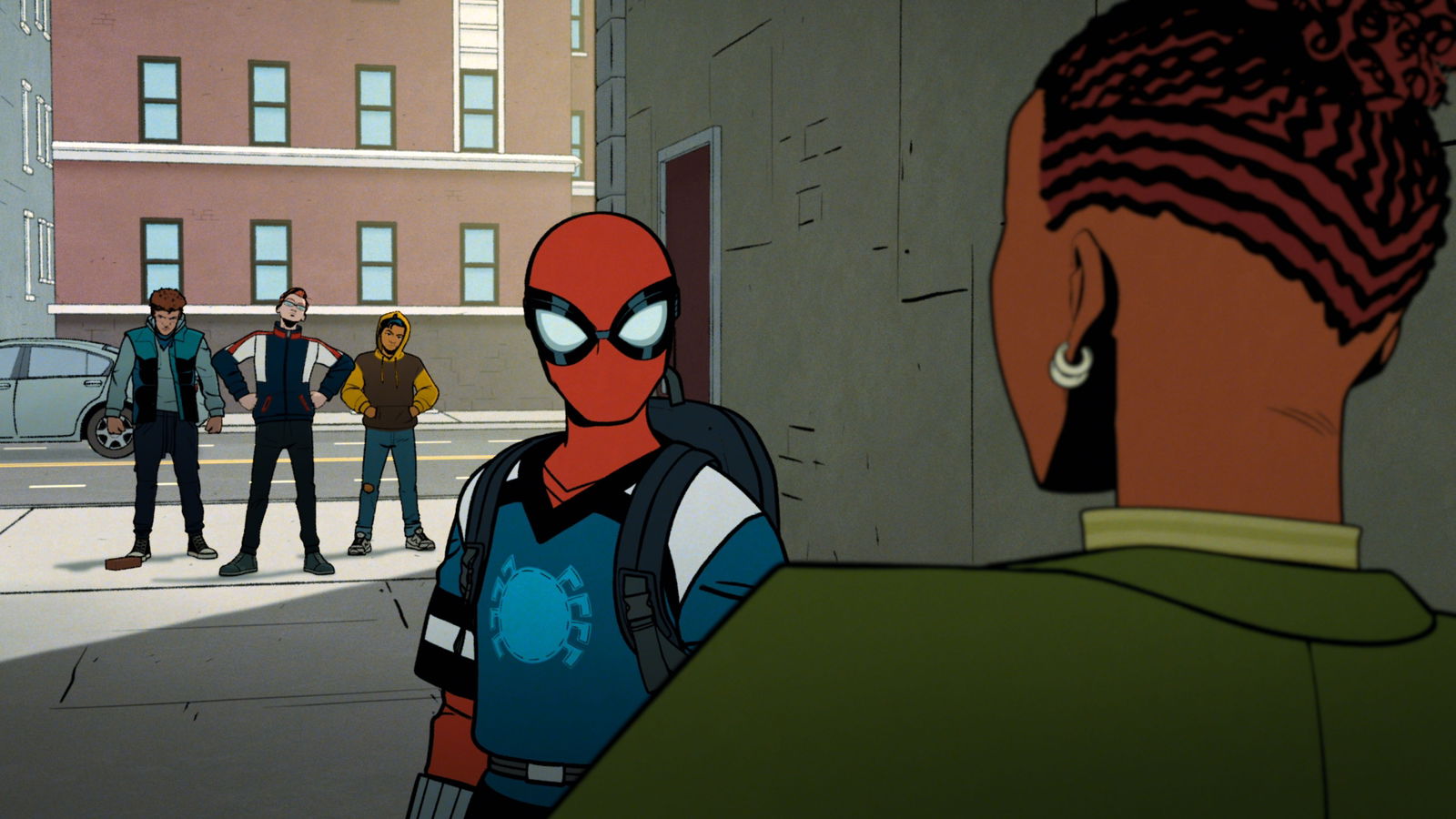
Everything culminates in a finale that wraps this origin story up in a neat bow, while leaving the door open for at least two more seasons. With the cast and paradigm the first season establishes, I can’t wait to see what new corners of the “neighborhood” it will explore.
I had been anticipating this series since it was first announced at Disney+ Day in 2021 as a direct tie-in to the MCU, exploring Tom Holland-Peter Parker’s roots, but now, on the other side of the season, I’m just as satisfied with what Your Friendly Neighborhood Spider-Man offers. There’s been a lot of great content for the webslinger in recent years, from Across the Spider-Verse to Spider-Man 2 to the great new origin in last year’s Ultimate Spider-Man comic series, but this series does what the high-profile feature films haven’t managed to do since Raimi’s second movie: show a new Spider-Man mythos that honours the past while representing the present.
